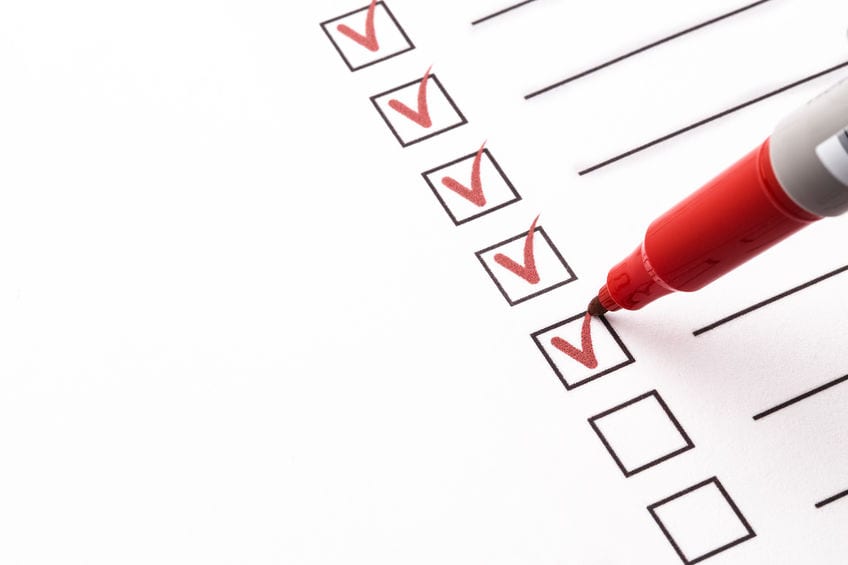Most people find the idea of filing taxes not so appealing. However, the entire process can be a lot easier if you plan ahead. Whether you hire an expert or do it yourself, there is specific information and documentation that you will need to file your taxes. Here is a tax preparation checklist to get you started.
When Are Taxes Due This Year?
You have until May 17, 2021 to file taxes for the 2020 tax year. The U.S. Treasury Department and the IRS pushed the deadline from April 15th due to COVID-19.
What Forms/Statements Are Needed?
Personal information
According to the IRS, you need to show who is filing and covered in your tax return. To do this, you need:
- Your Social Security Number and those of your spouse and all dependents. You may also include dependents such as elderly parents.
- W-2 Income Forms: Your employer(s) should have issued your W-2 by January 31st. W-2’s report your wage and salary information plus the amount of federal, state and other taxes withheld.
- Form 1099-MISC: payments received other than nonemployee compensation.
- Form 1099-NEC: nonemployee compensation received for self-employed, freelancers, and contractors. The 1099-NEC is new for the 2020 tax year.
- Form 1099-K: payments received from third parties like Amazon or PayPal.
- 1099-INT: interest from investment earnings.
- Form 1099-B: gains and/or losses from broker-handled transactions.
- Form 1099-DIV: dividends received from stocks or capital gains distributions from mutual funds.
Income documents
You should also have all documents that verify the income you made in 2020. Specific documents include:
1099 Income Forms: Each form features a different suffix depending on the type of payment you received:
If I Received Unemployment Benefits Due To COVID-19, Will I Owe Taxes On The Money Received?
The passage of the American Rescue Plan updated the tax implications for unemployment benefits. The first $10,200 of unemployment benefits is now tax-free if your annual household income is less than $150,000. If your unemployment benefits are more than $10,200, you should report the excess as taxable income and pay taxes on it.
What Are Common Deductions And Credits I Might Qualify For?
Deductions help reduce your taxable income so that you get a lower tax bill. The following are some of the standard deductions and credits that you may qualify for.
The deductions
- Medical Expenses Deductions: If you spend more than 7.5 percent of your adjustable gross income on qualifying medical care, you might be eligible for the Medical Expenses Deduction.
- Charitable Contribution Deductions: While claiming the standard deduction, the CARE Act allows you to claim a limited deduction on your 2020 tax return for any cash contributions you made to qualifying charitable organizations.
- Home Office Deduction: If you worked at home in 2020 and dedicated some space in your house for work, you may be eligible for a home office deduction. Ensure you maintain an excellent record of your office expenses on Schedule C.
The Credits
- The Earned Income Tax Credit (EITC): The EITC is a refundable credit that provides eligible workers with low or moderate-income some extra money.
- Child Tax Credit: if you have kids under 17, you can qualify for up to $2,000 per child and $500 for a non-child dependent in 2020.
- Employee Retention Credit: This credit is part of the CARES Act, and it provides a refundable tax credit equal to 50 percent of eligible employers’ qualified wages. The availability of the ERC was expanded by the Consolidated Appropriations Act of 2021.
- The Recovery Rebate Credit: This credit benefits anyone who qualified for an Economic Impact Payment but didn’t receive it.
- The American Opportunity Tax Credit: The AOTC allows you to claim the first $2,000 you spent on tuition, books, equipment, and school fees in 2020.
What If I Can’t Pay Taxes I Owe?
File your taxes by the May 17th deadline whether you can pay them in full or not. If possible, send the IRS some money to avoid penalties and interest.
Wiztax Can Help If You Owe Taxes and Can’t Pay
If you owe taxes for the current year and/or previous year(s) and you’re unable to pay off the full amount of your tax debt, Wiztax will help you find tax relief. You can start for free by answering simple tax questions to instantly see your tax resolution options.
Join our Newsletter
Enter your email address to join our free newsletter. Get all the latest news and updates.

